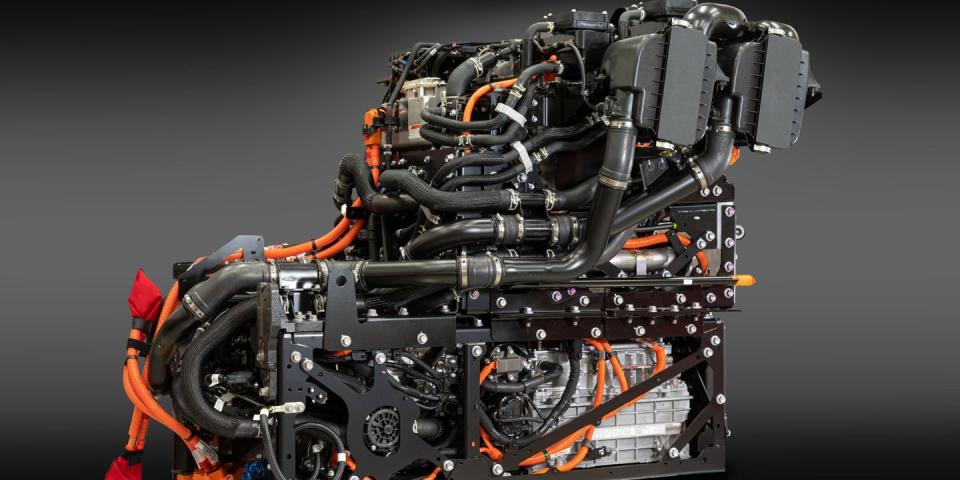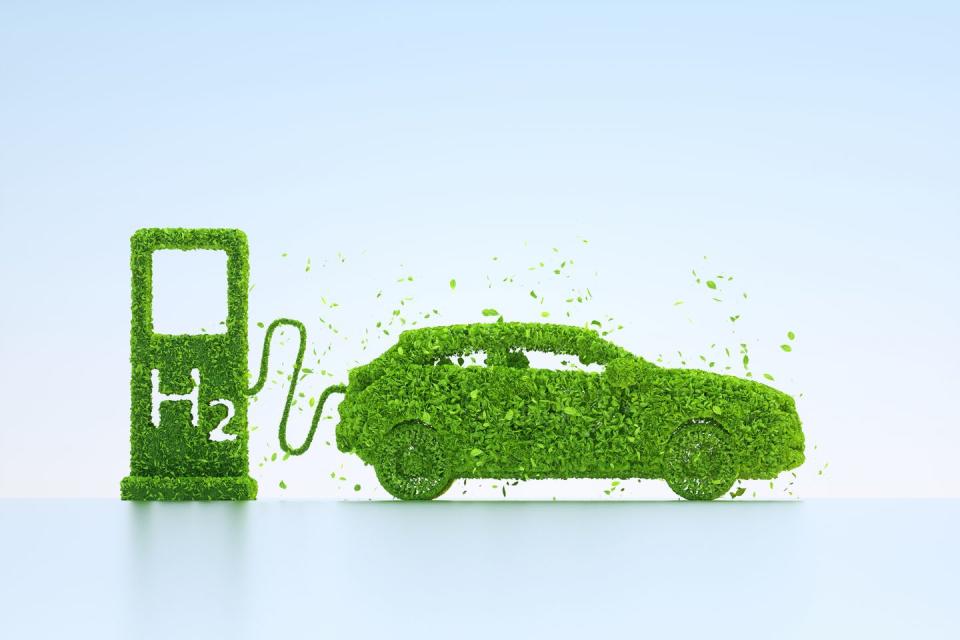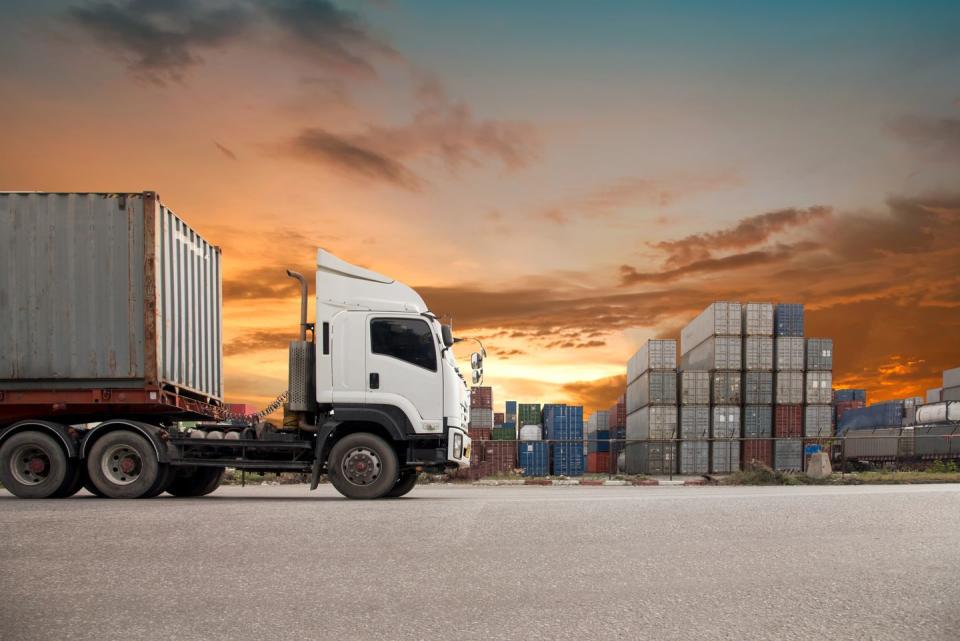Still Not All-In with EVs, Toyota Flexes Its Hydrogen Muscle with a Drop-In Fuel-Cell Kit for Big Rigs

Toyota has certified a fuel-cell powertrain kit for big Class 8 trucks.
The kits can be used by companies like Kenworth to power 18-wheelers.
No pricing, power, or torque specs were released.
Emissions rules are getting tighter all the time, particularly in California, and the whole transportation industry is reinventing itself to address new government regulations for clean air. The requirements for big Class 8 trucks that haul containers from the ports of Los Angeles and Long Beach to rail cars in East L.A. say the trucks must be zero-emissions—as in no tailpipe pollutants at all.
Almost all truckmakers—including Tesla, Mack, Mercedes-Benz, Volvo, and Freightliner—are addressing this new challenge with electric solutions. But Toyota, way behind on battery-electric powertrains, is going the fuel-cell route.
Thus, Toyota recently celebrated the California Air Resources Board’s (CARB) certification of its new heavy-duty fuel cell electric powertrain. The standalone powertrain comes in the form of a relatively compact kit—the “hydrogen-fueled powertrain kit.” It includes: hydrogen fuel storage tanks, fuel-cell stacks, batteries, electric motors, and transmission. According to Toyota, the kit “offers a viable alternative to traditional diesel powertrains used in commercial goods transportation as companies look to transition their fleets to zero-emission vehicles.”
No power or torque ratings were released and no pricing was mentioned, but the units are meant to fit into existing Class 8 truck architecture.
“Heavy-duty Class 8 commercial truck original equipment manufacturers and operators now have another tool to help them comply with increasingly strict emissions regulations in the State of California,” Toyota said.

The Toyota unit was certified by CARB to meet that agency’s Zero-Emissions Powertrain Executive Order and may also be eligible for government incentives to help pay for the transformation to cleaner running, such as CARB’s Hybrid and Zero-Emission Truck and Bus Voucher Incentive Project (HVIP), the Clean Truck Fund (CTF) introduced last year by the Ports of Los Angeles and Long Beach, as well as certain federal incentives. So while the price of the powertrain wasn’t released, whatever the price is can be mitigated by government funds to help truckers make the transition to zero-emissions.
Toyota says it has developed multiple generations of powertrain prototypes during almost six years of development, including a generation of truck named Ocean that “showed some of the greatest examples of how hydrogen-based powertrains with fuel cell stacks could be used in real-world applications such as drayage (short hauls), through a proof-of-concept demonstration at the Port of Los Angeles as part of the Zero-and-Near-Zero Emission Freight Facilities’ ‘Shore to Store’ Project.” In that project, Toyota worked with Kenworth to develop trucks using an updated prototype fuel cell electric powertrain and deployed 10 Kenworth T680 Class 8 trucks with it. The 10 trucks served real-world customers via drayage routes, with infrastructure support from Shell, hauling cargo between the Ports of Los Angeles and Long Beach and the L.A. Basin.

The powertrain is ready for commercialization, with production slated to start for customers later this year at Toyota’s Kentucky manufacturing plant.
“This newest generation of powertrain reflects key learnings and improvements in things like energy efficiency, package size, and more from extensive real-world testing and development from the company’s fuel cell development engineering team,” Toyota said. “Fuel cell electric powertrains are advantageous for heavy- and medium-duty transport when compared to other all-electric options, such as battery electric, as they are often lighter to allow for more payload, and they offer more uptime thanks to fueling times that are much closer to conventional diesel powertrains.”
While pricing was not announced, neither was getting hydrogen fuel from clean sources. Toyota worked with Shell during the project’s development, and while Shell can harvest waste hydrogen from it oil refineries, it’s not clear if that will be the source for any fuel cell trucks employed in the port-to-rail corridor in L.A. The vast majority of hydrogen used in fuel cell electric vehicles today is reformulated from natural gas in a process that gives off CO2 and other harmful gasses.
With the majority of the trucking industry looking at electricity for a zero-emissions future, it’s still not clear whether fuel cells or electricity will replace the turbodiesels that power almost all trucks today. But Toyota is at least looking toward fuel cells.
Are fuel cells the answer to clean trucking? Tell us what you think in the comments.

 Yahoo Autos
Yahoo Autos 